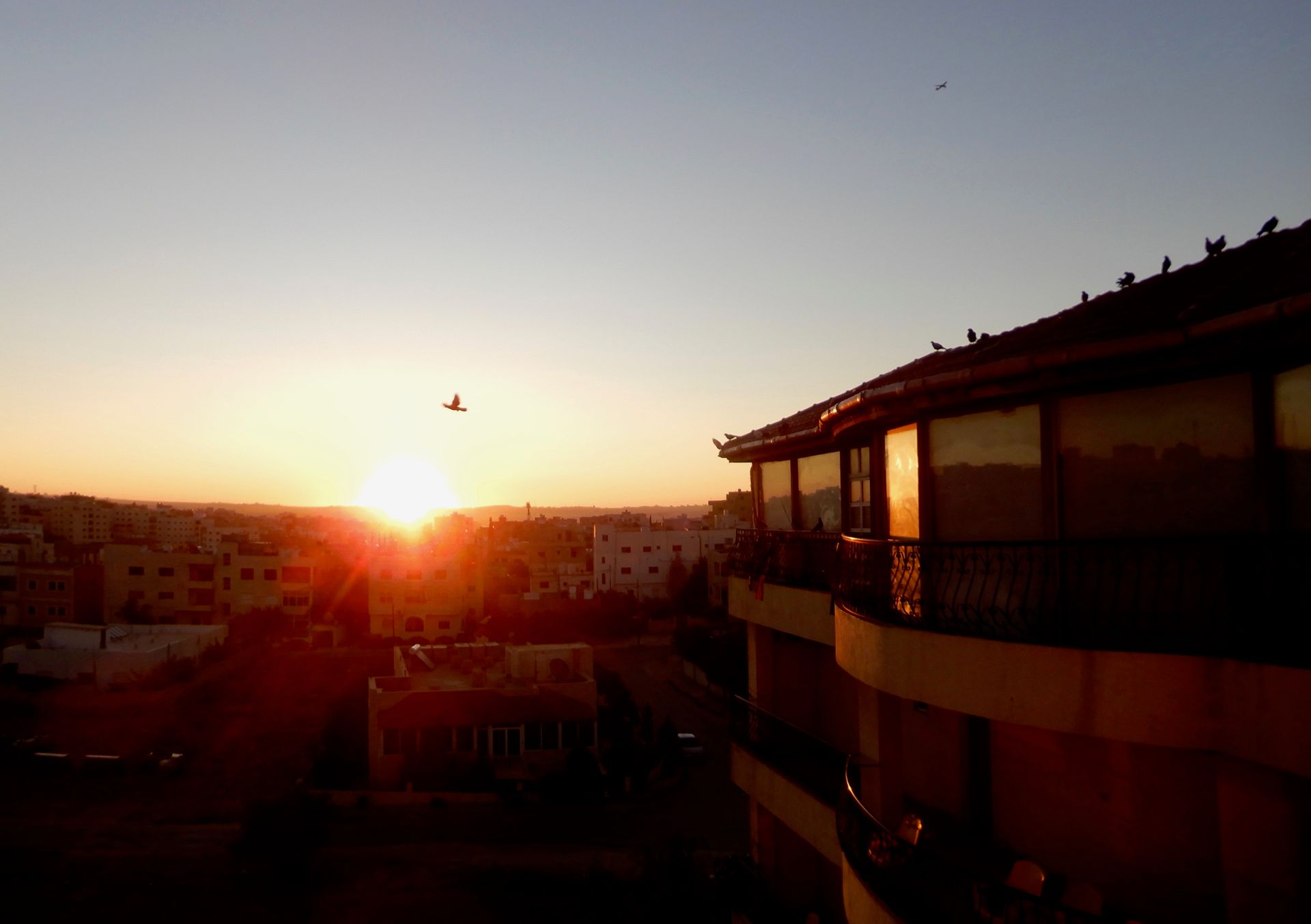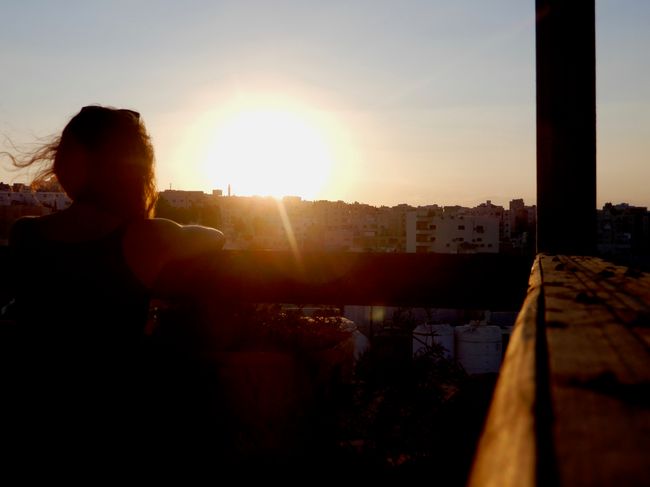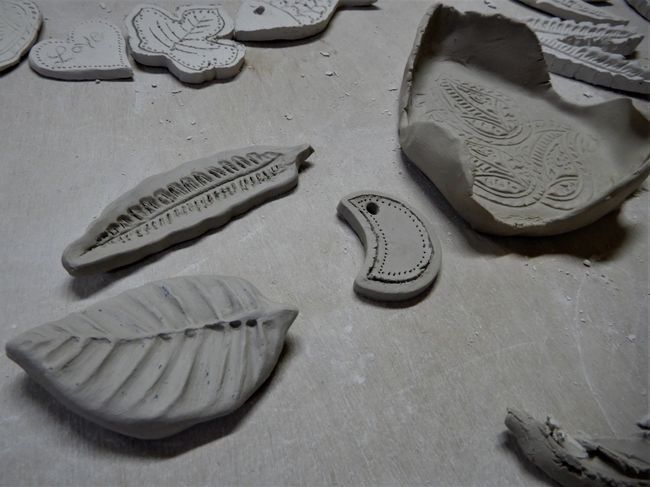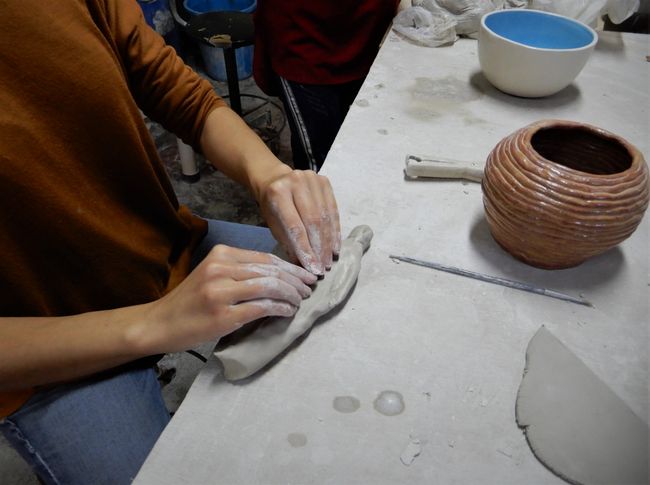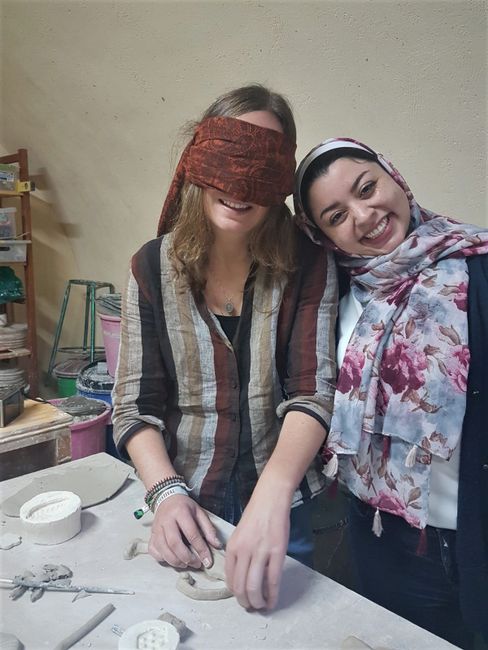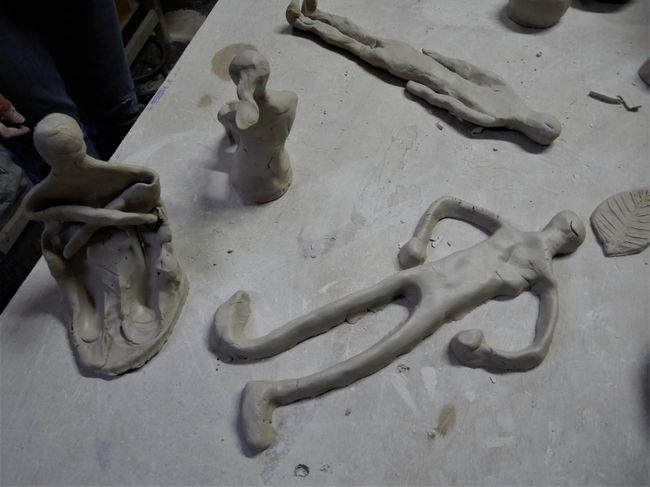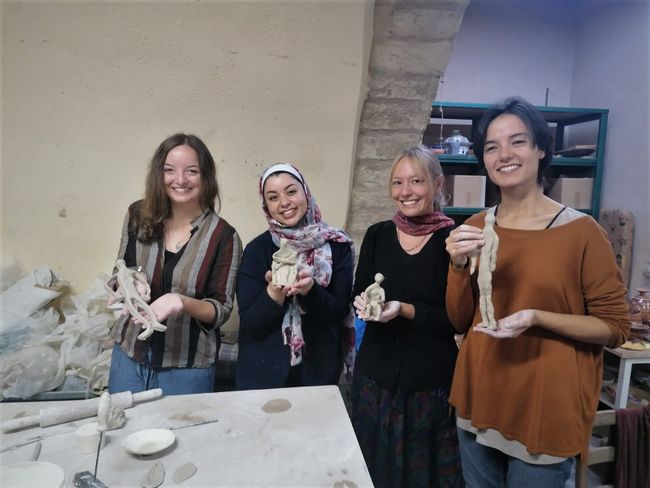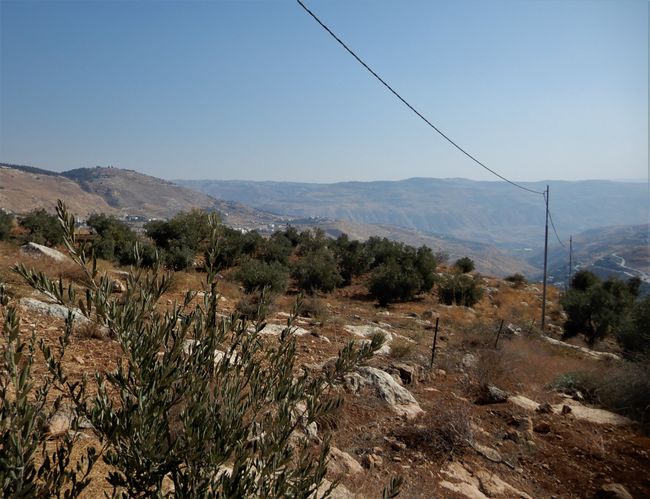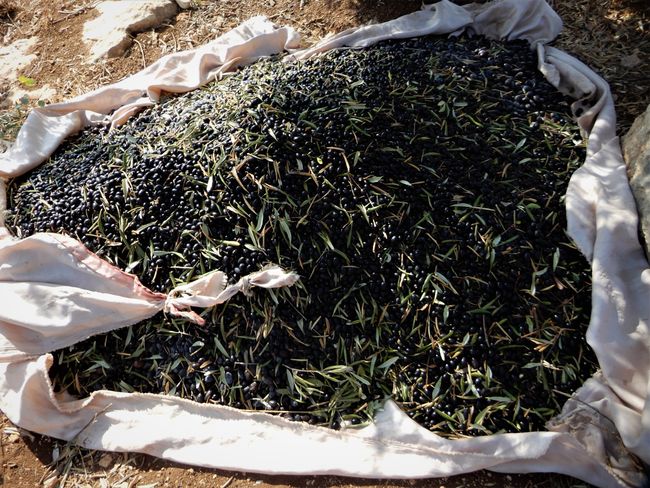Iraq Al-Amir, the Second
প্রকাশিত হয়েছে: 10.11.2019
নিউজলেটার সদস্যতা
Saturday, November 9th
7:30 am. This morning I am going jogging again and then getting ready for a shower and breakfast before heading to the 3rd Circle. Rudaina is picking us up there this morning for a little trip. “Us” refers to Sophia, Clara, and me. We are together in a group for one of our seminars, where we have to plan a project for an organization. Last week at our meeting, we discussed the idea of taking a pottery course with a group of young girls at Tarabot. Sophia and I were reminded of the Iraq Al-Amir Women’s Cooperation, where we visited during the summer school. It is the initiative that employs women from the region near Amman who produce paper, textiles, and clay objects according to ancient tradition. They also offer workshops, and today we have scheduled an appointment there to assess what is feasible at Tarabot.
Fortunately, Rudaina has a car - if there is a public bus that goes to this somewhat remote location in the beautiful mountainous area outside Amman, it is certainly time-consuming. However, with Rudaina as a reliable taxi driver, we reach the Cooperation's premises easily, and I have a little flashback from the summer school: everything still looks as wonderful and idyllic as a few weeks ago when we were here for the first time. I recognize Yisra, the woman with whom Rudaina made the appointment, and who explained everything to us back then. She speaks hardly any English, but fortunately, we have Rudaina as a Jordanian in our group, who is a perfect translator.
Yisra has been working here at Iraq Al-Amir since 1996 and can vividly explain all the pottery steps to us. Most of the bowls and cups for sale here are made with the potter's wheel, which is too much for us today. However, we can also make some pretty things without a potter's wheel, and we are sure that the girls at Tarabot would have a lot of fun doing it.
After trying out a few keychains and bowls, we then do a little self-test. Taking inspiration from a workshop on "Body-centered social work" that we had last week in one of our seminars at the university, we want to add some depth to pottery. We would like to give the girls the task of creating a clay sculpture with their eyes closed, expressing how they feel in their bodies. To experience this ourselves, we all tie scarves around our eyes, take a block of clay in our hands, and start shaping.
As expected, this is not such an easy task: while we all try to shape the desired sculpture out of the shapeless block, we update each other on the size of our heads and the length of our necks - based on how they feel, of course, as we can see nothing. We really have a lot of fun together, but apart from that, blind shaping is a truly special experience. I realize that I don't make enough use of my sense of touch in my everyday life, and it's fascinating to realize that my hands can shape the sculpture I imagine internally even without my eyes. Of course, our shapes don't end up quite as we imagined, but we are all satisfied with our works. Now we just need to put some thought into the exact execution of the activity at Tarabot. But for today, enough with pottery.
Spontaneously, a second program point comes up: Yisra mentioned in passing that it is currently olive season, which is why the farmers in the area are busy with olive picking every day. Yisra offered to show us that as well, and of course, we don't want to miss it. In Rudaina's car, we continue up a narrow, very steep road into the mountains and when we arrive at the top, we follow Yisra through a fence into an olive orchard. After a while, a few women appear hidden among bushes and trees, greeting us with friendly and curious eyes. They all belong to one family, as Yisra tells us, and are now busy with olive picking every day for the about two-month season.
We are already sweaty from the short walk - the temperature here is even hotter than in Amman, and the midday sun is still burning down on our heads at full force. Olive picking causes the beads of sweat to run continuously down my back. I can only imagine how much physical strength the two-month olive harvest must require. But it is also an incredibly beautiful atmosphere here, between the sisters, their mother, and their little brother, who tell each other little stories from time to time, which Rudaina translates for us. Under an olive tree, an older woman sits, cooking tea for the workers*with a small gas burner in front of her. I would really like to spend more time with the family here.
Not wearing the right work clothes (some olives are already leaking oil, which smells wonderful but also has the potential for big stains), we leave the plantation after about an hour. But maybe we can still come back here for a whole weekend to be able to help more.
নিউজলেটার সদস্যতা
উত্তর (1)
Hannah
<3 جميل 